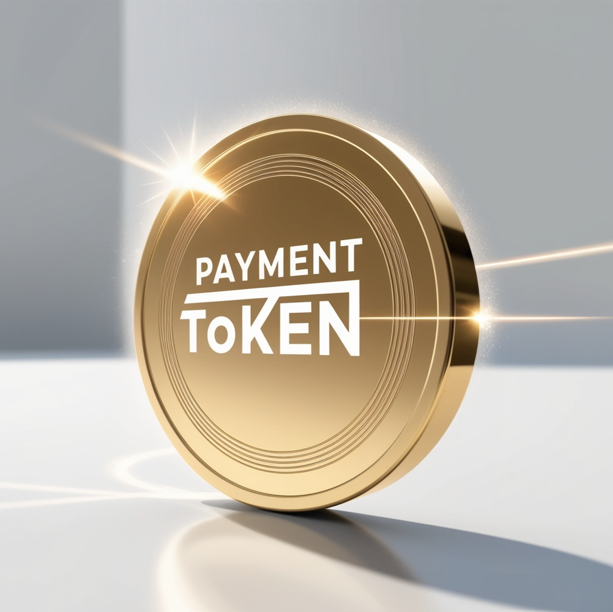
Payment Token Services Regulation (PTSR) Introduced by the Central Bank of the UAE
11 November 2024
Glory Sony
In 2024, the Central Bank of the
UAE (CBUAE) introduced the Payment Token Services Regulation (PTSR),
establishing a comprehensive framework for the regulation of payment tokens,
such as stablecoins, within the UAE. This regulation is part of the UAE's
broader initiative to position itself as a global leader in financial
innovation, while ensuring a secure and regulated environment for digital
financial services.
The PTSR outlines the
requirements set by the CBUAE for granting licenses or registration for the
provision of Payment Token Services. These services are divided into three
categories: Payment Token Issuance, Payment Token Conversion, and Payment Token
Custody and Transfer. According to Article 2 of the PTSR, no entity is
permitted to provide any Payment Token Service within the UAE, or directed
towards persons in the UAE, unless they are licensed by the CBUAE.
Key Highlights of the PTSR
- Definition of Payment Token
A Payment Token
is defined as a “Virtual Asset that aims to maintain a stable value by
referencing the value of either (a) the same Fiat Currency as the Payment Token
is denominated in; or (b) another Payment Token also denominated in the same
Fiat Currency.”
There are two main types of
Payment Tokens:
- Dirham Payment Tokens: Tokens pegged to or
denominated in the UAE Dirham.
- Foreign Payment Tokens: Tokens pegged to or
denominated in foreign currencies.
- Activities within PTSR scope
The PTSR sets out a comprehensive
framework for licensing and supervising digital payment services. The key
activities covered under the PTSR include the following:
- payment token issuance;
- payment token conversion; and
- payment token custody and transfer,
Together
referred to in the PTSR as “Payment Token Services”.
- Capital Requirements
To guarantee their financial
stability, a Licensed Payment Token Issuer must keep a certain amount of
regulatory capital on hand. This consists of
(a) a minimum of fifteen (15)
million Dirhams in initial and continuing capital, and
(b) a minimum of 0.5% of the face value of their outstanding Payment Tokens in Fiat Currency in extra ongoing capital.
Additionally, regulatory capital
must be maintained by a Licensed Payment Token Service Provider engaged in
Payment Token Custody and Transfer or Payment Token Conversion, based on the
average monthly value of Payment Token Transfers:
·
The provider must maintain
at least AED3 Million in regulatory capital if the monthly average value
is 10 million dirhams or more, and if the monthly average value is less than AED10
Million,
·
if the monthly average
value is less than AED10 Million, the provider must hold at least 1.5 million
Dirhams in regulatory capital.
- Licensing Requirements
Entities providing Payment Token
Services (such as issuance, conversion, custody, or transfer) must obtain the
relevant licenses from the CBUAE.
Licensing applies to entities
operating within the UAE, including its free zones, but excludes financial free
zones like the DIFC and the ADGM.
Licenses may only be given to
companies which are incorporated in the UAE, including free zones but excluding
financial free zones (e.g. the Dubai International Financial Centre (“DIFC”)
and Abu Dhabi Global Market “ADGM”)).
The CBUAE also has the authority
to exempt a payment token issuer from licensing and other requirements where
the required reserve of assets does not exceed 500,000 UAE dirhams and there
are no more than a hundred token holders.
- Scope of Regulation
The PTSR
regulates the issuance, custody, and transfer of payment tokens, ensuring these
services are performed only by licensed entities.
Certain types of Payment Tokens
are exempted from the PTSR, such as:
- Payment Tokens used for reward or bonus point
schemes.
- Payment Tokens that can only be used as a means of
payment for non-financial goods or services provided by the issuer.
- Excluded Activities
A number of particular activities
are exempt from the Regulation.
·
Any operations that are
already regulated or that call for licensing under the Retail Payment Services
and Card Schemes Regulation (RPSCS) or Stored Value Facilities (SVF)
regulations of the Central Bank are not included.
·
Additionally, it excludes
services related to trust, privacy protection, technological infrastructure
operations, and information technology security that do not immediately fall
under the purview of payment token services.
·
Furthermore, services
pertaining to the setup or upkeep of communication networks, distributed ledger
technology, and terminals and other equipment utilized for payment token
services are exempt from the regulation.
·
Transfers of payment tokens
between licensed providers, central counterparties, clearing houses, central
banks, and similar organizations that take place within a payment or securities
settlement system are not included.
·
Finally, payment is not
included.
- Payment Token Services Financial promotions
Only licensed or registered individuals, or those designated by
licensed or registered individuals, are permitted to make financial
advertisements pertaining to Payment Token Services.
No one may advertise that foreign payment tokens are a legitimate way to pay
for the purchase of virtual assets or virtual asset derivatives, either within
the United Arab Emirates or to individuals in the country, unless the
advertisement specifically mentions foreign payment tokens issued by Registered
Foreign Payment Token Issuers.
It is also forbidden to advertise algorithmic stablecoins, privacy
tokens, or services associated with them within the United Arab Emirates or to
those residing there.
- Prohibition on merchants in UAE from accepting
virtual assets
Merchants and other businesses in
the UAE are also restricted from accepting virtual assets as payment unless the
asset is a Dirham Payment Token issued by a Licensed Payment Token Issuer or a
Foreign Payment Token issued by a Registered Foreign Payment Token Issuer and
is being used to purchase a virtual asset or its derivative.
- Consumer Protection
The PTSR
includes various provisions to ensure consumer protection. These provisions
require firms to comply with Consumer Protection Regulations, including:
- Regulatory capital requirements.
- Anti-Money Laundering and Counter-Terrorist
Financing (AML/CTF) obligations.
- Protection of payment and customer data.
- Risk management and control systems, along with
technology risk and IT security financial promotions in relation to
Payment Token Servicesmeasures.
The PTSR showcases the UAE's commitment to fostering innovation within the financial sector while ensuring a regulated, transparent, and secure environment for digital assets and payment solutions.
In conclusion
An important turning point in the
region's regulation of digital financial services has been reached with the
CBUAE's implementation of the Regulation impacting many facets of the virtual
asset services sector.
Under the new regulation, service providers who use stablecoins—like USDT,
USDC, etc.—face additional difficulties. A service provider cannot utilize
these stablecoins unless the underlying issuers have received CBUAE approval,
even if the service provider is registered or licensed by the CBUAE.
The Regulation improves the security, stability, and reliability of the digital
payment ecosystem, but it also presents operational and compliance issues. For
service providers to successfully operate in the UAE mainland, they must
carefully manage these new regulatory requirements.
ALKETBI Touch
We highly advise current or
soon-to-be regulated VARA firms to get advice on whether CBUAE registration
and/or licensing are necessary for their operations to continue. ALKETBI team
of experts will provide you with thorough guidelines to apply or register under
the CBUAE. Contact us
Latest News





01/24/2025
Josleen Deeb





